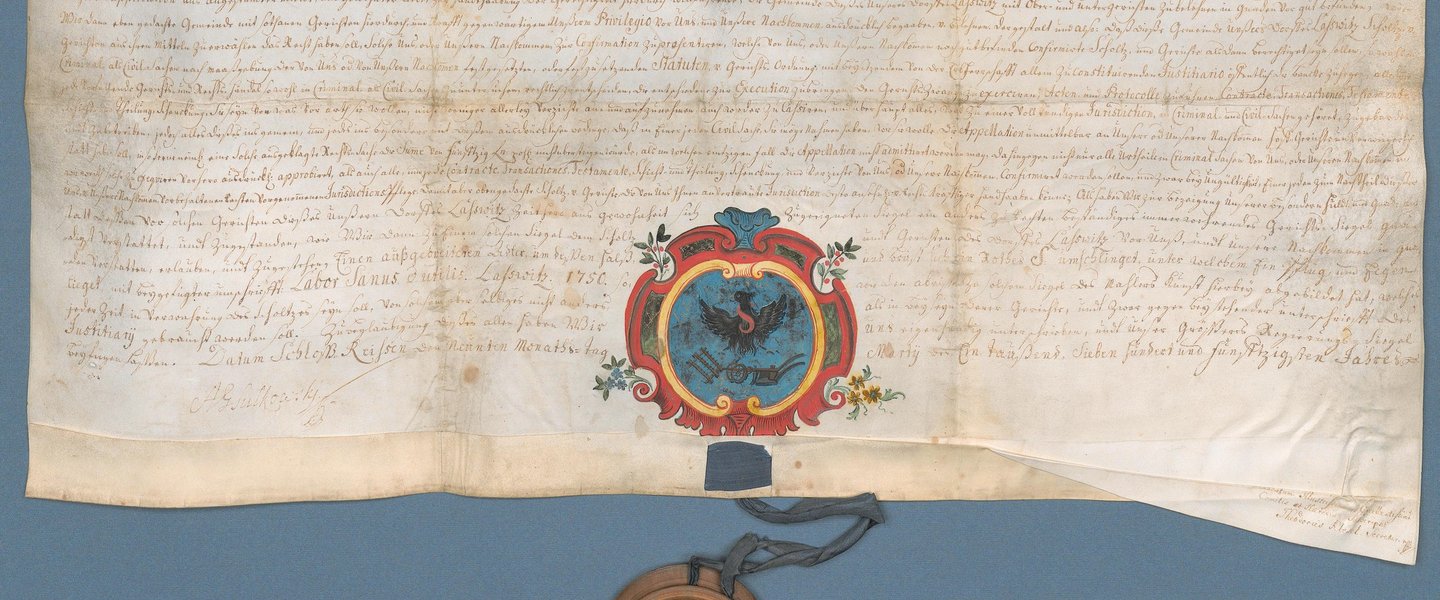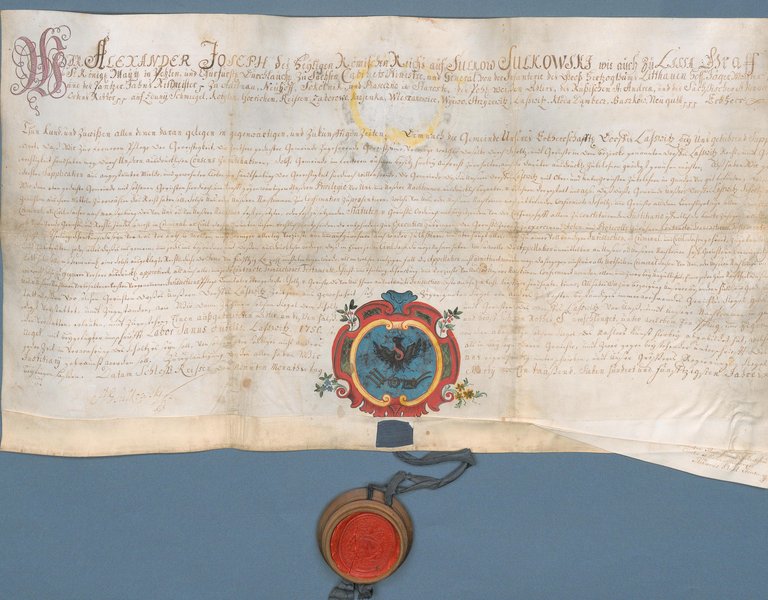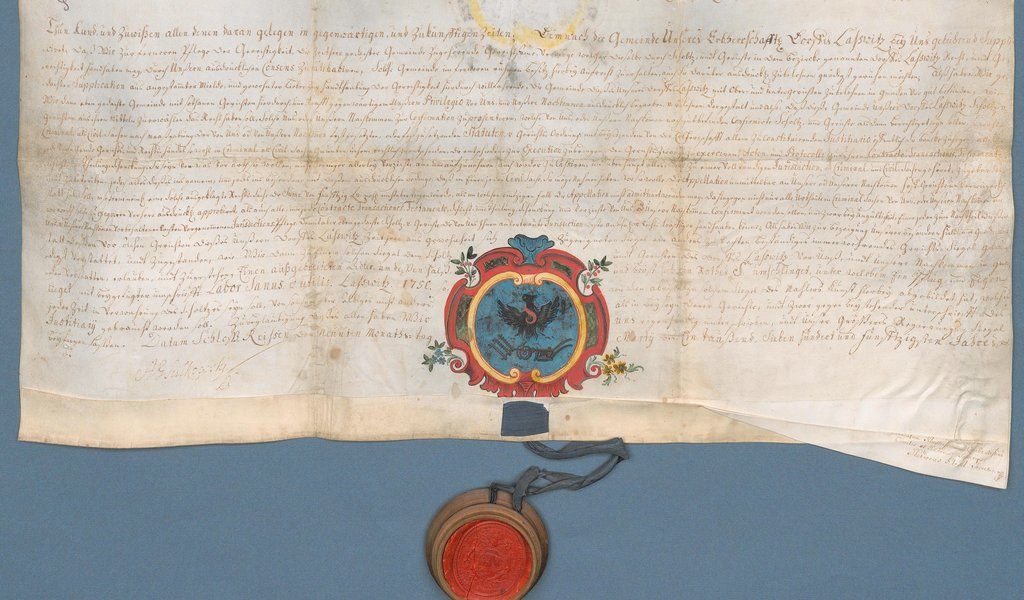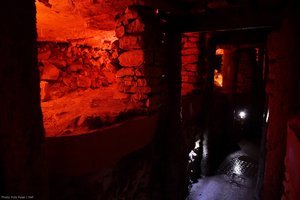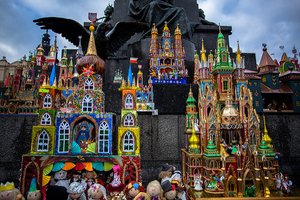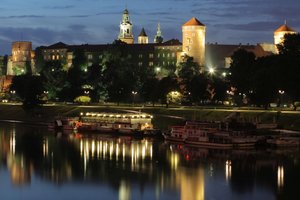The first sentence in Polish in the UNESCO register
“Księga Henrykowska”, a chronicle of the Cistercian Abbey of the 13th century containing the oldest sentence written in Polish, has been included in the UNESCO Memory of the World Register.
“Daj, ać ja pobruszę, a ty poczywaj”, said by a Czech man to his Polish wife, means most probably: “Let me do the milling (turn the millstones) and you have some rest”, though some linguists think that it was supposed to mean rather “and you admire”, i.e. “have a look”, which suggests that the husband would do it better than his wife.
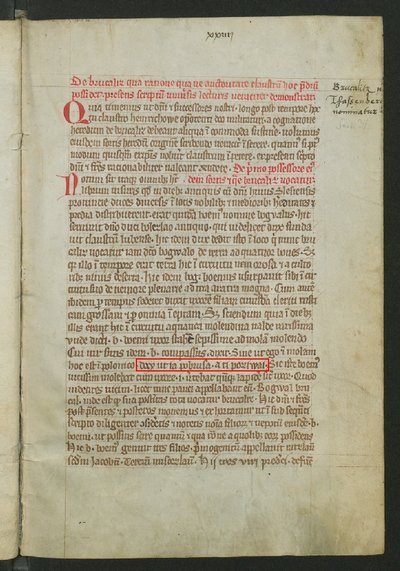 Bogwał, the Czech owner of Brukalice in Silesia, did not expect that the sentence uttered by him with respect to household activities would become part of the Polish language history as the first sentence written in Polish. The German abbot who was writing a chronicle of his times in Latin, decided to put it in the original language. Thanks to that “Księga Henrykowska”, actually “Liber fundationis claustri sanctae Mariae Virginis in Heinrichow” or “Księga założenia klasztoru świętej Marii Dziewicy w Henrykowie” (The chronicle of the foundation of the St Mary the Virgin Abbey in Henryków) which was being written in the Cistercian Abbey in Lower Silesia after 1268, has become one of the most important documents in the history of the Polish language.
Bogwał, the Czech owner of Brukalice in Silesia, did not expect that the sentence uttered by him with respect to household activities would become part of the Polish language history as the first sentence written in Polish. The German abbot who was writing a chronicle of his times in Latin, decided to put it in the original language. Thanks to that “Księga Henrykowska”, actually “Liber fundationis claustri sanctae Mariae Virginis in Heinrichow” or “Księga założenia klasztoru świętej Marii Dziewicy w Henrykowie” (The chronicle of the foundation of the St Mary the Virgin Abbey in Henryków) which was being written in the Cistercian Abbey in Lower Silesia after 1268, has become one of the most important documents in the history of the Polish language.
In its proposal to the International Committee of the UNESCO Memory of the World Programme, the Polish Committee stressed the uniqueness of “Księga Henrykowska” as a source of knowledge on cultural exchange processes which influenced the shape of the future Europe in the Middle Ages.
“The eligibility criteria for a heritage item to be included in the register are strictly defined. In terms of its significance, a heritage item must go beyond the time when and place where it was produced, and include evidence that it relates to a fact that contributed significantly to the course of events on a global scale. ‘Księga Henrykowska’ meets these criteria as a great chronicle depicting the society and the people in the 13th century and the early 14th century,” explained Professor Władysław Stępniak, Director-General of the State Archives, in an interview for Polska.pl.
"The chronicle is of interest to the Czech, Polish and German people, and is an icon in each of these countries. For Polish people it is particularly important as the book which contains the first sentence recorded and uttered in Polish. “Księga Henrykowska” was written in the area where the Mongol onslaught on Europe was repulsed and where the Mongol invasion led to the acceleration of social, economic and political processes taking place in Lower Silesia. European integration was accelerated there as well. Shortly afterwards, towns that respected the Magdeburg rights emerged in Silesia,” adds the professor.
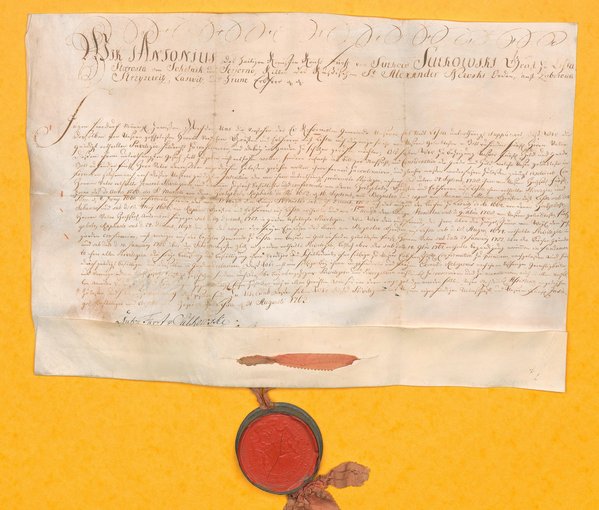 Besides “Księga Henrykowska”, the International Committee of the UNESCO Memory of the World Programme, sitting in early October in Abu Dhabi, entered in the register also the Manuscripts and the library of the Czech Brethren. Thus, among the 47 documents entered in the register (out of the 88 proposed ones from 61 countries) there are two Polish ones.
Besides “Księga Henrykowska”, the International Committee of the UNESCO Memory of the World Programme, sitting in early October in Abu Dhabi, entered in the register also the Manuscripts and the library of the Czech Brethren. Thus, among the 47 documents entered in the register (out of the 88 proposed ones from 61 countries) there are two Polish ones.
The Manuscripts of the Czech Brethren kept in the State Archives in Poznan are unique documents attesting to the religious contestation which occurred one hundred years ahead of the Lutheran reform. “Czech Brethren is a religious denomination which due to repression left the Czech territory and settled in Leszno where its members not only could freely indulge in religious rituals, but also founded scientific institutions. This was recognized as a great example of the attitude of a country which thanks to religious tolerance could be then followed by Europe,” explains Professor Stępniak.
KAROLINA KOWALSKA
Polish documents in the Memory of the World Register
Created in 1992, the UNESCO Memory of the World Register includes approx. 300 manuscripts, printed and audiovisual documents of a global historical or civilization importance. As many as 14 of them relate to Polish heritage. Besides the documents included in the register in October, these are: the autograph from Nicolaus Copernicus’ work “De revolutionibus”, kept in the Jagiellonian Library in Krakow, Frederic Chopin’s manuscripts kept in the National Library and the Frederic Chopin’s Society in Warsaw, Ringelblum’s Underground Archive, i.e. Ghetto Archive (in the Jewish Historical Institute), General Warsaw Confederation Act of 1573 (in the Central Archives of Historical Records (AGAD) in Warsaw), the boards with the 21 demands of the workers striking in Gdansk in August 1980 (in the National Maritime Museum in Gdansk), Codex Suprasliensis (multinational entry: Polish-Russian-Slovenian, the Polish part is kept in the National Library in Warsaw), the National Education Commission Archive (in the Polish Academy of Sciences and the Princes Czartoryski Library in Krakow), the Archive of the Literary Institute (in Paris), the Radziwills’ Archive and the Niasvizh (Nieśwież) Library Collection in the AGAD (multinational entry: Belarusian-Finnish-Lithuanian-Polish-Russian-Ukrainian), the Archive of the Warsaw Reconstruction Bureau (BOS) kept in the State Archives of the Capital City Warsaw, the Collections of the Historical and Literary Society in Paris: the Polish Library and the Adam Mickiewicz Museum in Paris, the Peace Treaties entered into by the Polish Kingdom and the Ottoman Empire from the second half of the 15th century until the end of the 18th century, kept in the AGAD.
30.10.2015
